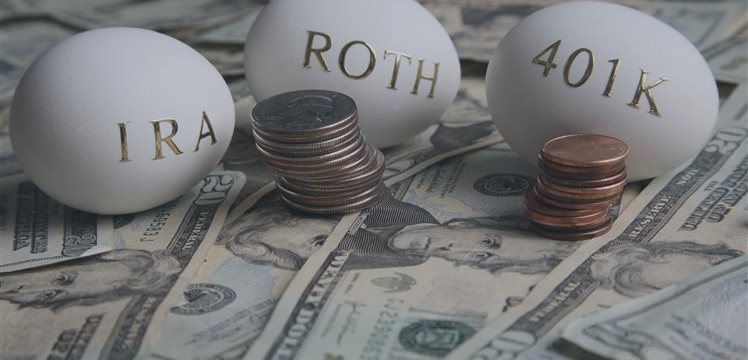Age matters a lot when it comes to investing. A couple with a newborn is undoubtedly going to have different requirements from a person nearing retirement. Still, equally important as age is the life stage you are in. You may be in your late 30s or early 40s when you are welcoming a new addition to the family or you may be close to 70 before you even start thinking about retiring.
"Your age helps dictate how you invest, but at the end of the day it all depends on your time horizon," says Brian David Neal, wealth partner at Hefty Wealth Partners in Auburn, Indiana. "A 20-year-old has a 50- or 60-year time horizon, which makes a big difference in how aggressive to get."
Whether you just landed
your first job or you are gearing up to trade the tie for a set of golf
clubs, there are investment strategies you need to consider. With that
in mind, here's a look at five life stages, and how experts say you
should be investing during those periods:
Fresh graduated from college, the main focus is on cash flow, or lack of it, if you are starting at the bottom rung in your new job. Money may be tight, but you still need to take advantage of any retirement savings programs being offered by your company, particularly if there is a matching component. By ignoring it, you are leaving free money on the table.
"A lot of people don't take advantage of the 401(k), arguing they can't afford to do that," says Kimberly Foss, founder of Empyrion Wealth Management of Roseville, California. But you don't have to contribute the maximum. You can ease your way into it, she says.
As for your investment strategy, Foss says you need to be in the stock market, regardless of what has happened in the recent past. "The rule of thumb is 100 minus your age is what percentage should be in equities," she says.
Investing aggressively is the name of the game when you are young, but Terry Siman, managing director at United Capital in the money management firm's North Wales, Pennsylvania office, says you should go slowly at the beginning. "Invest in a balanced mutual fund and see what it's like on a day-to-day basis," Siman says. "You need to get to know yourself to be a good investor."
Many just married couples want to pursue the American dream of having their own house, which can impact how they are investing. To fund a home purchase, Neal of Hefty Wealth Partners says at this stage you and your spouse may want to pull back some of your retirement contributions to make that purchase, but at the same time keep your end goal in mind of having enough money in retirement.
It's also a time when you both have to be on the same page on the issue of how much money is being spent and how much is being saved and invested.
"You mutually have to agree to invest for growth" at this stage, Siman says. "The dominant financial partner as well as the nondominant one have to understand what they are spending and saving together."
For those newlyweds who aren't purchasing a home, they likely have more combined discretionary income, which should go toward their eventual retirement nest egg.
Empyrion's Foss says at this stage, both spouses should
be maxing out their 401(k) contributions. If one spouse doesn't work,
she says it's important for that person to open up a Roth IRA, or
individual retirement account, and try to fund the maximum of $5,500 per
year.
Everything changes when you have a baby, and that can be said about your investment style, as well. While you still want to be aggressive in the stock market, you also are looking at saving for your child's college education, which is where a 529 college savings plan comes in.
It's also the time when you should be taking out life insurance or making sure you have enough coverage if you already have a policy, says Ben Barzideh, wealth adviser at Piershale Financial Group Inc. in Crystal Lake, Illinois.
"It's very important as you go through the life phases that you update your beneficiaries in your retirement accounts and life insurance policies," Barzideh says. "Your beneficiaries override your estate plan and your will."
In addition to funding a 529 college savings plan, Barzideh says in this life phase you still want to have the pedal to the metal when it comes to investments. "Even when there are new family members, I recommend you try to put money in your 401(k) and IRA," Barzideh says. "You are still in a growth allocation (in your investments), trying to make money grow for you."
As you head into your 50s, you should be planning for your retirement. For most of your working life, you have hopefully been accumulating wealth. That doesn't mean you should move all your money into something safe, but it does mean that you want to take a look at how heavy your investing risk has gotten.
"One of the biggest risks is losing a major portion of your retirement fund around the time you want to retire," says Neal of Hefty Wealth Partners. "You want to make sure you're invested in the proper type of investments."
That means you want to have money invested in stocks, but you should also be looking at fixed income or bonds, he says. Piershale's Barzideh says it's also a good idea to start investing in more income-producing vehicles, such as dividend-paying stocks.
During the years leading up to retirement, Siman of United Capital says you should be ramping up your 401(k) contributions to get the maximum tax benefit as well.
"You have to be globally diversified, looking for growth opportunities where you can find them," he says. "When you retire, you can't give up growing money either, because you are going to be retired for 25 to 35 years."
Long gone are the days when you retire and then die a few years later. These days, people are spending 25 to 35 years in retirement, which means the biggest two risks are outlasting your money and protecting it from inflation.
"It would really hurt to have a pretty sizable market downturn when you are in retirement," Neal says. "It really matters how you invest."
According to experts, while you may think it's smart to move all your money into something safe like bonds, the reality is you need that money to grow at a rate higher than inflation, or your retirement dollars will have less purchasing power.
"You don't want to get too conservative," Barzideh says. "You do want to tone the portfolio down and reduce some of the risk."
If you are invested in higher-growth, small- or mid-cap stocks, it may be the time to move to dividend-paying stocks that are safer but will produce some income for you. It's also the time to start looking at legacy planning if you have heirs.
"Tax planning becomes very important, especially if you have a big nest egg and you are looking at ways to pass some of that on," he says.



